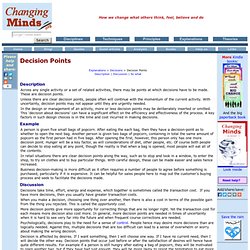

People Reading. The Three Don’ts of Persuasion - Management Tip of the Day - February 08, 2012. How to Win Friends and Influence People by Dale Carnegie. Ben Franklin effect. The Ben Franklin effect is a psychological finding: A person who has done someone a favor is more likely to do that person another favor than they would be if they had received a favor from that person.

Similarly, one who harms another is more willing to harm them again than the victim is to retaliate.[1] Recognition of effect by Franklin[edit] In the words of Benjamin Franklin, who famously observed the effect and for whom it is named, "He that has once done you a kindness will be more ready to do you another, than he whom you yourself have obliged.
"[2] In his autobiography, Franklin explains how he dealt with the animosity of a rival legislator when he served in the Pennsylvania legislature in the 18th century: Having heard that he had in his library a certain very scarce and curious book, I wrote a note to him, expressing my desire of perusing that book, and requesting he would do me the favour of lending it to me for a few days. Personality Tests. MBTI Basics - The 16 MBTI Types. Quiet, serious, earn success by thoroughness and dependability.

Practical, matter-of-fact, realistic, and responsible. Decide logically what should be done and work toward it steadily, regardless of distractions. Take pleasure in making everything orderly and organized - their work, their home, their life. Value traditions and loyalty. List of thought processes. Nature of thought[edit] Thought (or thinking) can be described as all of the following: An activity taking place in a: brain – organ that serves as the center of the nervous system in all vertebrate and most invertebrate animals (only a few invertebrates such as sponges, jellyfish, adult sea squirts and starfish do not have a brain).

It is the physical structure associated with the mind. mind – abstract entity with the cognitive faculties of consciousness, perception, thinking, judgement, and memory. Having a mind is a characteristic of humans, but which also may apply to other life forms.[1][2] Activities taking place in a mind are called mental processes or cognitive functions.computer (see automated reasoning, below) – general purpose device that can be programmed to carry out a set of arithmetic or logical operations automatically.
Types of thoughts[edit] Self Made Scholar - Free Online Directory of Web Based Classes and Courses. Decision Points. Explanations > Decisions > Decision Points Description | Discussion | So what Description Across any single activity or a set of related activities, there may be points at which decisions have to be made.

These are decision points. Unless there are clear decision points, people often will continue with the momentum of the current activity. In the design or management of an activity, more or less decision points may be deliberately inserted or omitted. Example A person is given five small bags of popcorn.
In retail situations there are clear decision points along the way, such as to stop and look in a window, to enter the shop, to try on clothes and to buy particular things. How to tell in 15 minutes whether someone likes you - by Bridget Webber. Bridget Webber's image for: "Body Language that Shows when someone of the Opposite Sex Fancies you" Caption: Location: Image by: Wouldn't it be great to be able to tell within fifteen minutes whether someone likes you or not?

The Eyebrow Raise The eyebrow raise is generally reserved for members of the opposite sex who like what they see, and it happens straight away. The Smile. People don’t know when they’re lying to themselves. “I am on a drug.

It’s called Charlie Sheen. It’s not available because if you try it, you will die. Your face will melt off and your children will weep over your exploded body.” – Charlie Sheen “We put our fingers in the eyes of those who doubt that Libya is ruled by anyone other than its people.” – Muammar Gaddafi You don’t have to look far for instances of people lying to themselves.
Using experiments where people could cheat on a test, Chance has found that cheaters not only deceive themselves, but are largely oblivious to their own lies. Chance asked 76 students to take a maths test, half of whom could see an answer key at the bottom of their sheets. And they were wrong – when Chance asked her recruits to actually take the hypothetical second test, neither group outperformed the other. Chance also found that the students weren’t aware that they were deceiving themselves. The story of the self. Memory is our past and future.

To know who you are as a person, you need to have some idea of who you have been. And, for better or worse, your remembered life story is a pretty good guide to what you will do tomorrow. "Our memory is our coherence," wrote the surrealist Spanish-born film-maker, Luis Buñuel, "our reason, our feeling, even our action. " Lose your memory and you lose a basic connection with who you are. It's no surprise, then, that there is fascination with this quintessentially human ability. This is quite a trick, psychologically speaking, and it has made cognitive scientists determined to find out how it is done. When you ask people about their memories, they often talk as though they were material possessions, enduring representations of the past to be carefully guarded and deeply cherished.
We know this from many different sources of evidence. Even highly emotional memories are susceptible to distortion. What accounts for this unreliability? Amy Cuddy: Your body language shapes who you are.